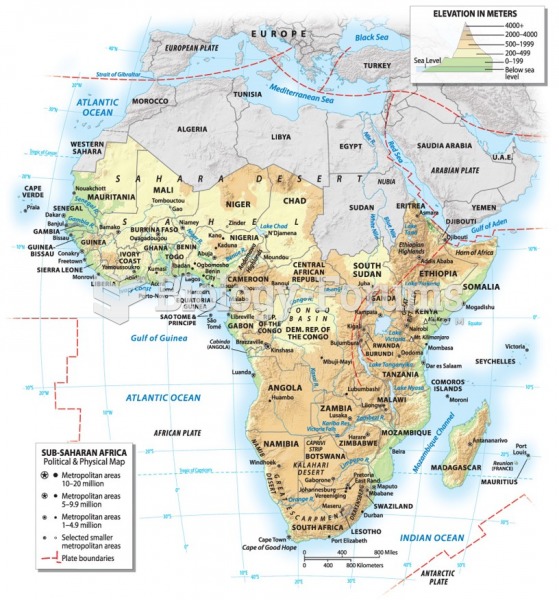|
|
|
There used to be a metric calendar, as well as metric clocks. The metric calendar, or "French Republican Calendar" divided the year into 12 months, but each month was divided into three 10-day weeks. Each day had 10 decimal hours. Each hour had 100 decimal minutes. Due to lack of popularity, the metric clocks and calendars were ended in 1795, three years after they had been first marketed.
Nearly all drugs pass into human breast milk. How often a drug is taken influences the amount of drug that will pass into the milk. Medications taken 30 to 60 minutes before breastfeeding are likely to be at peak blood levels when the baby is nursing.
Atropine was named after the Greek goddess Atropos, the oldest and ugliest of the three sisters known as the Fates, who controlled the destiny of men.
The average adult has about 21 square feet of skin.
Serum cholesterol testing in adults is recommended every 1 to 5 years. People with diabetes and a family history of high cholesterol should be tested even more frequently.
 Large regions of the Boreal forest in Alberta have been divided into a grid due to industrial develo
Large regions of the Boreal forest in Alberta have been divided into a grid due to industrial develo
 H. erectus migrated out of Africa beginning about 1.8 million years ago and is first known from Geor
H. erectus migrated out of Africa beginning about 1.8 million years ago and is first known from Geor





